The CME Training Symposium titled “Advances in Cardiovascular Disease: From Intervention to Prevention”, organised by FV Hospital in Ho Chi Minh City on April 19, 2025, brought together 638 physicians and leading experts from Vietnam and abroad. This well-regarded annual scientific forum aims to share on the latest advancements in the treatment of cardiovascular diseases, including stroke, myocardial infarction, heart failure, and arrhythmias.
The symposium highlights FV Hospital’s pioneering role as an international hospital within the Thomson Medical Group (Singapore), particularly in advancing treatment methods and fostering strong collaborations with a global network of physicians. These efforts are designed to bring international medical expertise closer to Vietnam’s medical community, with the ultimate goal of improving survival outcomes for patients with cardiovascular diseases.
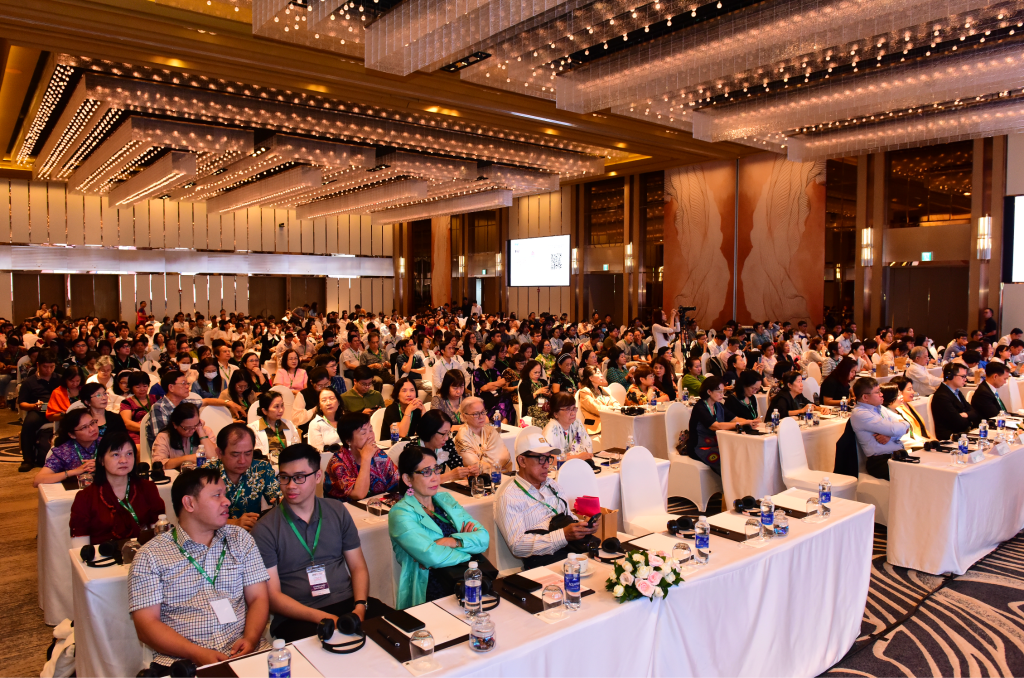
The symposium was co-chaired by Prof. Do Doan Loi, MD, PhD, President of Vietnam Heart Failure Association and representative of Bach Mai Hospital, and Assoc. Prof. Pham Nguyen Vinh, MD, PhD, Vice President of Vietnam Heart Association. The event also featured leading experts from Vietnam, Singapore, and Malaysia as guest speakers.
Coronary Intervention: Breakthroughs from Imaging Technology to the Role of Coronary Physiology
Cardiovascular disease remains the leading cause of death in Vietnam, with coronary artery disease as the primary driver of acute myocardial infarction. Accurate identification of the cause and severity of coronary artery lesions is crucial, as it allows physicians to make timely and effective treatment decisions – significantly improving patient survival outcomes.
At the symposium, Ho Minh Tuan, MD, PhD, Head of Cardiology and Interventional Cardiology Department at FV Hospital, presented two advanced imaging techniques: Intravascular Ultrasound (IVUS) and Optical Coherence Tomography (OCT). These advanced imaging modalities, now applied in cardiovascular treatment at FV, provide interventional cardiologists with powerful tools for more accurate diagnosis and treatment. In many cases, patients with only a few percent chance of survival were successfully treated thanks to the use of these techniques.
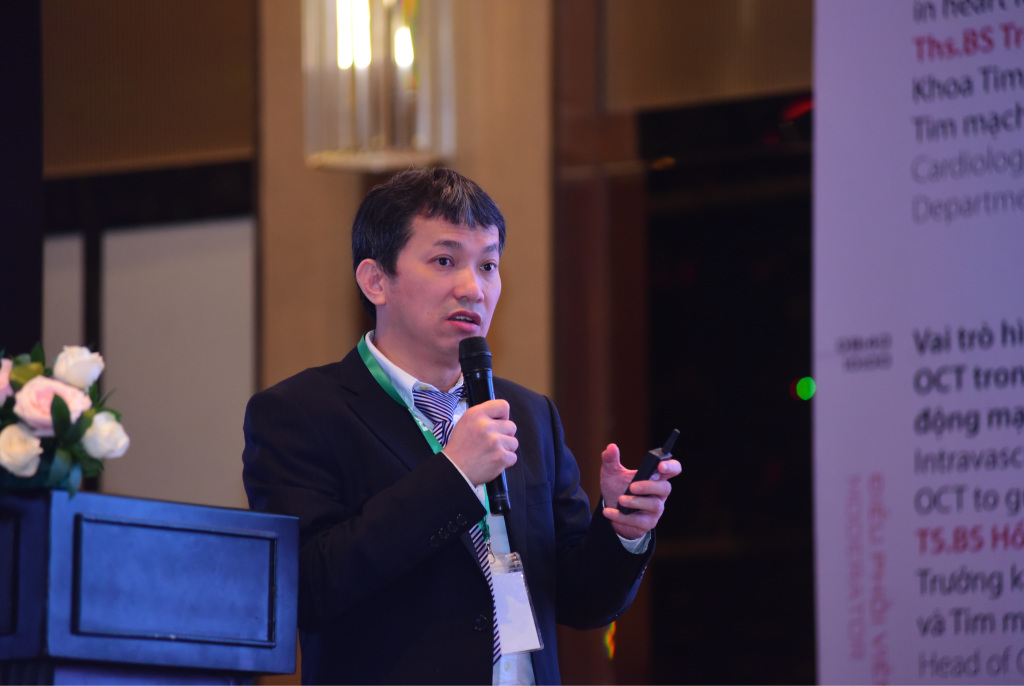
The IVUS technique employs a high frequency ultrasound probe (approximately 60 MHz) inserted directly into the coronary artery to generate high-definition images. This technique allows physicians to accurately assess the structure of the arterial wall, identify related pathologies, and evaluate changes in the vessel before and after the intervention.
Optical Coherence Tomography (OCT) uses a miniature imaging device that emits short-wavelength infrared light to capture high-resolution images inside the coronary artery. These detailed images reveal the vessel’s fine structure, helping physicians to precisely identify the optimal stent placement site, choose the appropriate stent size, and minimise the risk of in-stent restenosis.
Also focusing on coronary intervention, Keh Yann Shan, MMed, MRCP, from the Cardiology Department at the National Heart Centre Singapore, delivered a presentation titled “Role of Coronary Physiology in Clinical Decision Making in Patient Coronary Artery Disease.” The use of coronary physiological indices enables physicians to evaluate and determine the most effective intervention strategies, thereby improving treatment outcomes. This approach remains relatively new to many physicians in Vietnam.
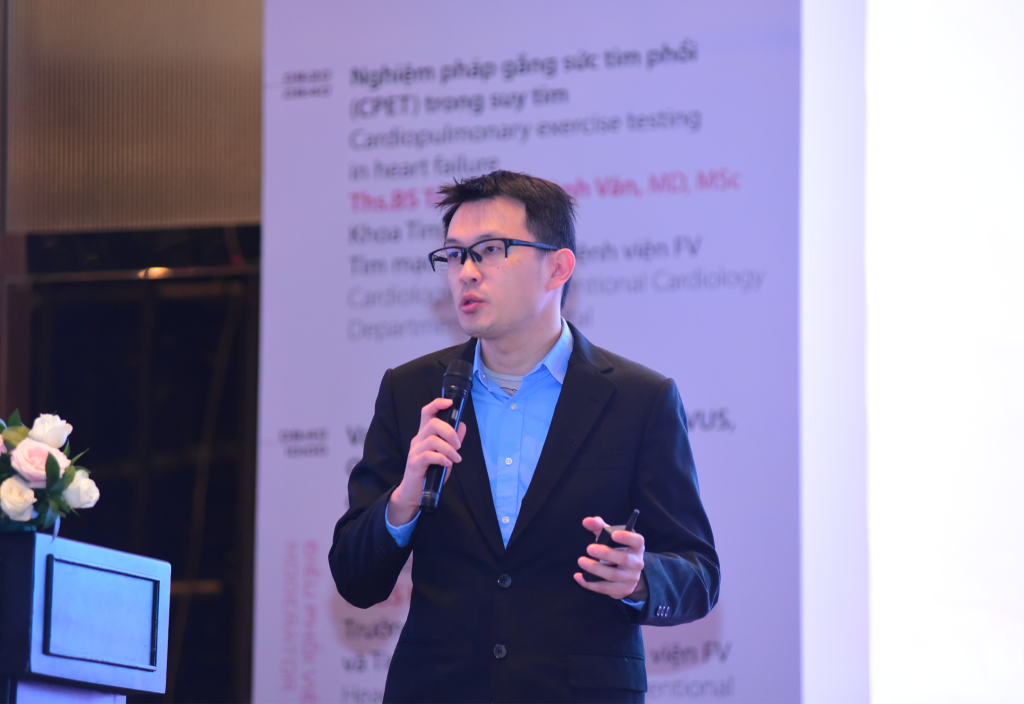
A “Revolution” in Stroke Treatment and Solutions to Prevent Recurrence
According to Ho Minh Tuan, MD, PhD, Head of Cardiology and Interventional Cardiology Department at FV Hospital, stroke carries a high risk of recurrence – 7-20% within the first year and 16-35% by the fifth year. Cardiovascular centres must adopt comprehensive strategies for secondary stroke prevention. This requires an integrated care system that includes patient education and outcome evaluation; management of risk factors; screening and diagnostic services, as well as improved access and patient management.
On this topic, John C. Wang, MD, MSc, MBBCh, Vascular and General Surgeon at Mount Elizabeth Hospital, Singapore, shared valuable insights into Deep Vein Thrombolysis/Thrombectomy (DVT). Affecting 2.5% to 5.0% of the population, DVT poses a potentially life-threatening risk due to the possibility of blood clots traveling to the heart and causing pulmonary embolism.
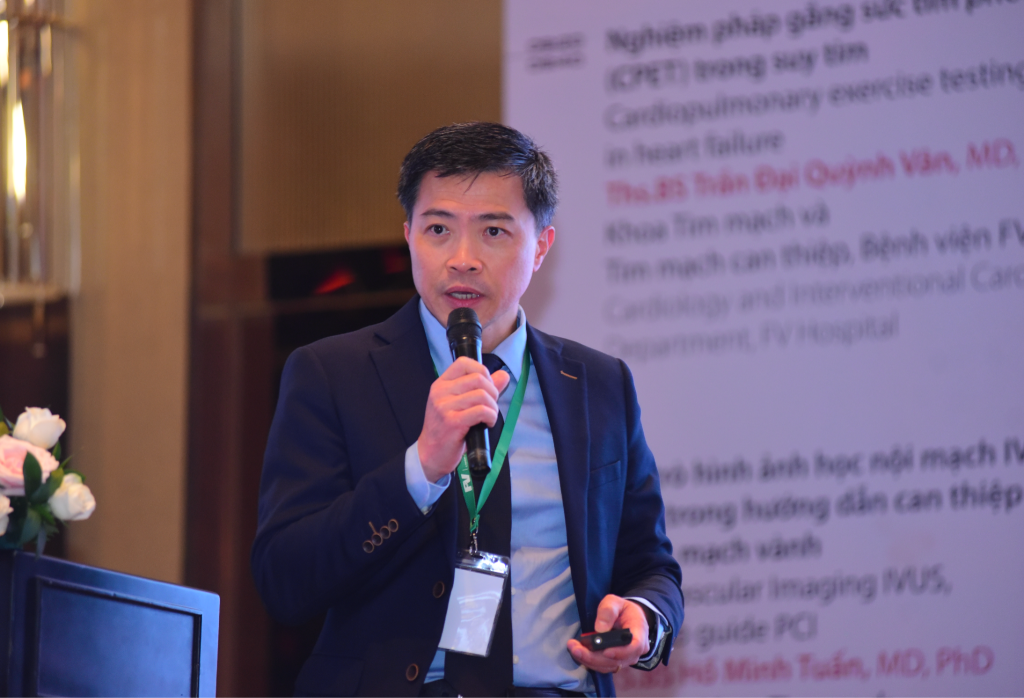
According to Dr Wang, in addition to medication, patients with acute deep vein thrombosis may be treated with catheter-directed thrombectomy – a procedure with a high success rate that effectively reduces the risk of cardiovascular complications and pulmonary embolism.
Le Tu Phuong Thao, MD, PhD, from the Neurology Unit, Internal Medicine Department at FV Hospital presented the role of mechanical thrombectomy in the treatment of acute stroke using a stent retriever device. This technique, which reopens large occluded vessels, has been shown to be highly effective in treating acute ischemic stroke – particularly when performed within the first six hours of symptom onset.
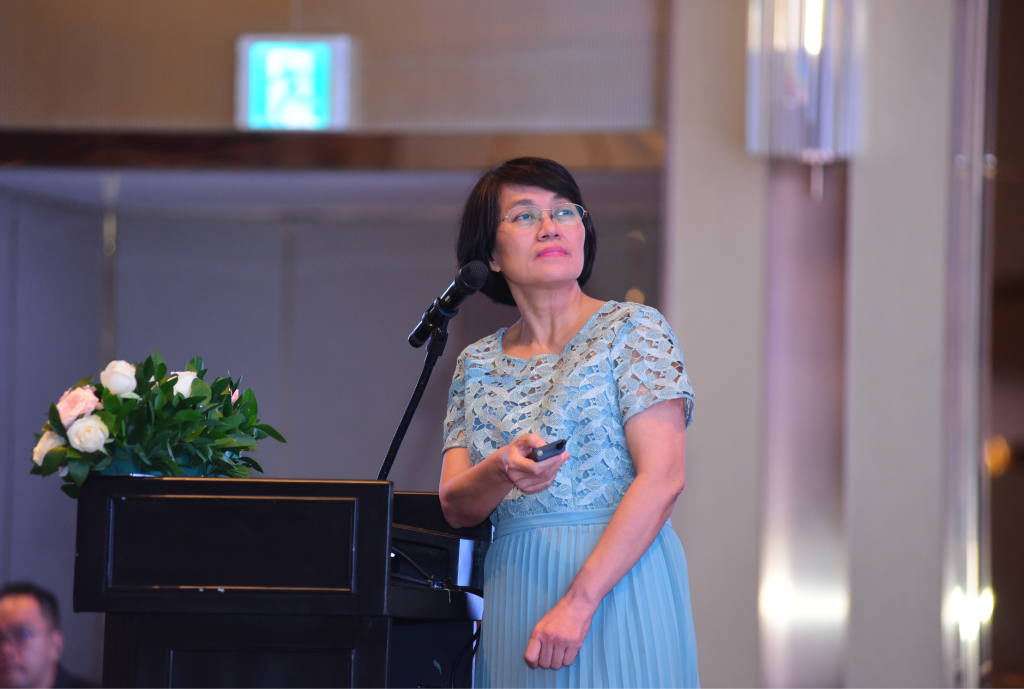
Dr Thao described mechanical thrombectomy as a revolutionary advancement in stroke treatment. Notably, its indication for thrombectomy is no longer limited to the first six hours after stroke onset; the procedure can now also be applied to selected patients presenting within 6- to 24-hour window. The major challenge lies in developing a comprehensive stroke treatment system that ensures timely and effective intervention. This includes critical decisions regarding patient triage and transfer protocols, as well as the essential role of neurovascular intervention specialists.
FV Leads the Way in Adopting the Next-Generation TAVI Technology
Transcatheter Aortic Valve Implantation (TAVI) was a key area of interest among physicians at the symposium, especially in the context of managing aortic valve stenosis.
According to Dr Shargunandass Iynam, Consultant Interventional Cardiologist at Serdang Heart Center, Malaysia, TAVI has become a routine minimally invasive procedure for treating aortic valve stenosis. A bioprosthetic valve is delivered to the heart via a catheter inserted through the femoral artery or a small incision in the chest, replacing the damaged aortic valve. Over the past 20 years, TAVI has seen significant advancements, including improved durability, simplified procedural steps, and in some cases, the elimination of the need for general anaesthesia.
“TAVI is currently indicated for patients with symptomatic severe aortic stenosis, and its use may soon expand to include asymptomatic patients. In the future, TAVI could also be recommended for younger patients, especially those with bicuspid aortic valves,” shared Dr Shargunandass Iynam.
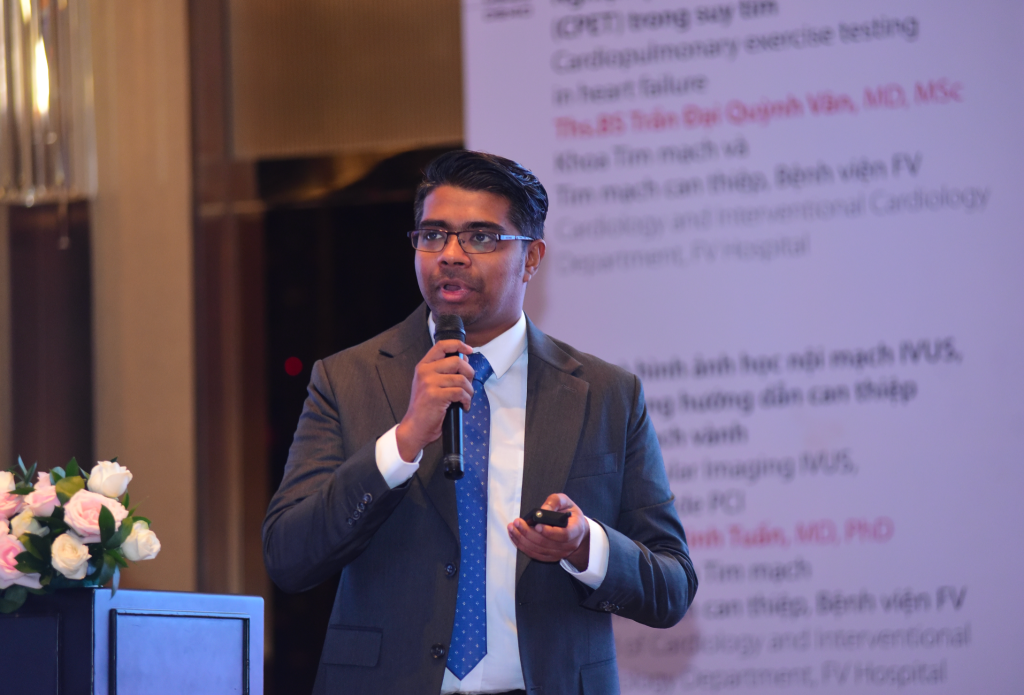
According to Dr Ho Minh Tuan, although TAVI is widely adopted globally, its use in Vietnam remains limited, with only around 70 cases performed annually. This is primarily due to the small number of healthcare facilities equipped to offer the procedure. At FV Hospital, however, TAVI has become a routine treatment, supported by 3Mensio CT imaging software integrated with AI-based 3D simulation of arteries and cardiac structures. This advanced technology allows physicians to accurately assess valve dimensions, device pathways, and optimal placement positions.
In 2025, FV became the first medical facility in Vietnam to implement the next generation Evolut™ FX transcatheter valve system – a major innovation that enhances procedural outcomes, particularly for patients with complex vascular anatomy.
Atrial Fibrillation: Personalized Treatment and Radiofrequency Ablation
Atrial fibrillation (AF), an increasingly common cardiac arrhythmia in the general population, accounts for approximately 25% of all strokes. At the symposium, Assoc. Prof. Pham Nguyen Vinh, MD, PhD, Vice President of Vietnam Heart Association, delivered a comprehensive overview on the latest guidelines for the diagnosis and management of AF. He emphasised the importance of a personalised, comprehensive treatment approach tailored to each patient’s condition. These insights are particularly valuable for physicians managing atrial fibrillation, as they help reduce the risk of complications and enhance patients’ quality of life.
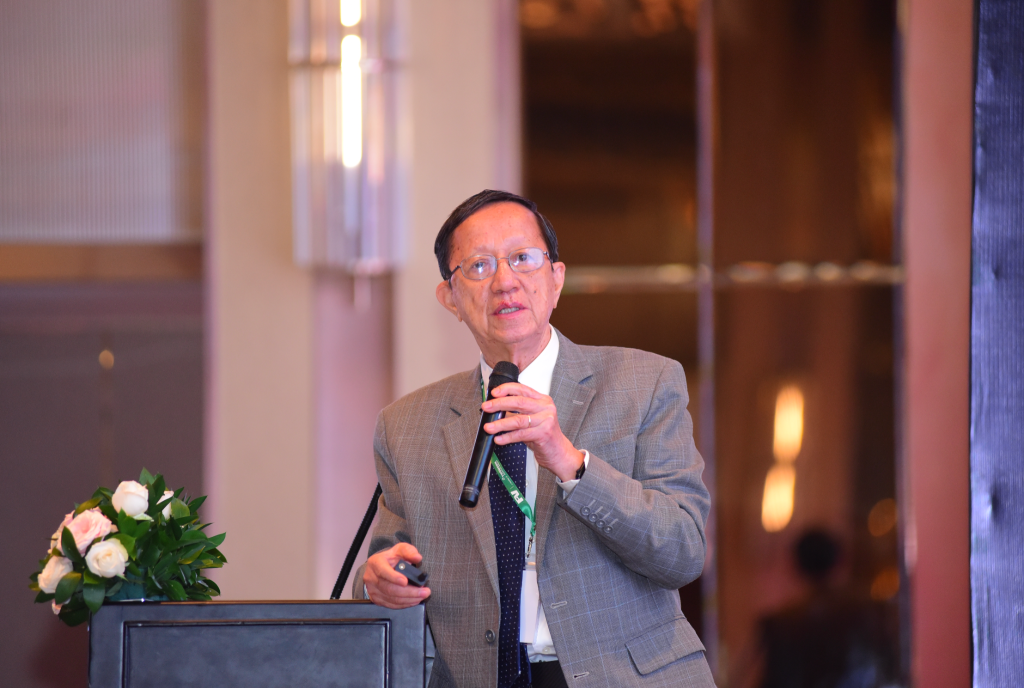
Dr Hoang Quang Minh from the Cardiology and Interventional Cardiology Department at FV Hospital presented the latest advancements in radiofrequency ablation for atrial fibrillation, which is now integrated with 3D electroanatomical mapping systems to correct abnormal heart rhythms. This procedure is now routinely performed at FV Hospital. Dr Minh noted that radiofrequency ablation is increasingly recognised as a first-line treatment for atrial fibrillation – safe, effective, and significantly enhanced by modern technologies that improve precision and personalised therapy.
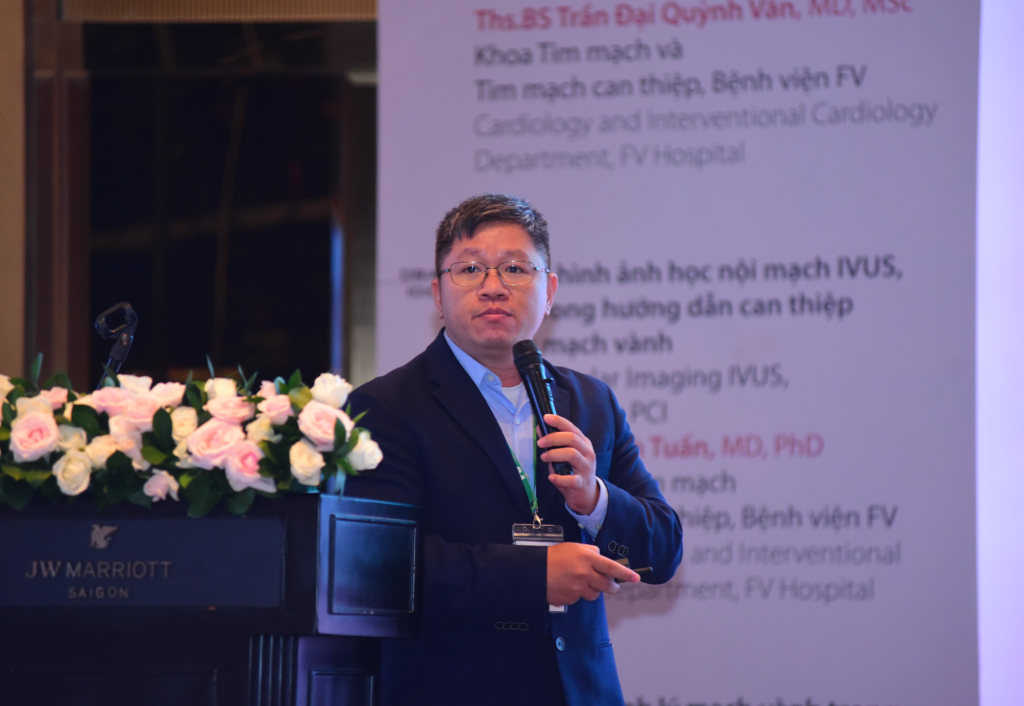
Comprehensive Treatment Planning and Management for Patients with Heart Failure
In this session, Prof. Do Doan Loi, MD, PhD, President of Vietnam Heart Failure Association and representative of Bach Mai Hospital, shared insights into a comprehensive care model for heart failure patients.
According to Prof. Loi, heart failure represents the final stage of cardiovascular disease, with 75% of patients dying within five years of hospital admission and readmission rates reaching up to 50% within 6 to 12 months. Despite this, 70% of the population does not view heart failure as a serious condition, highlighting a critical gap in public awareness.
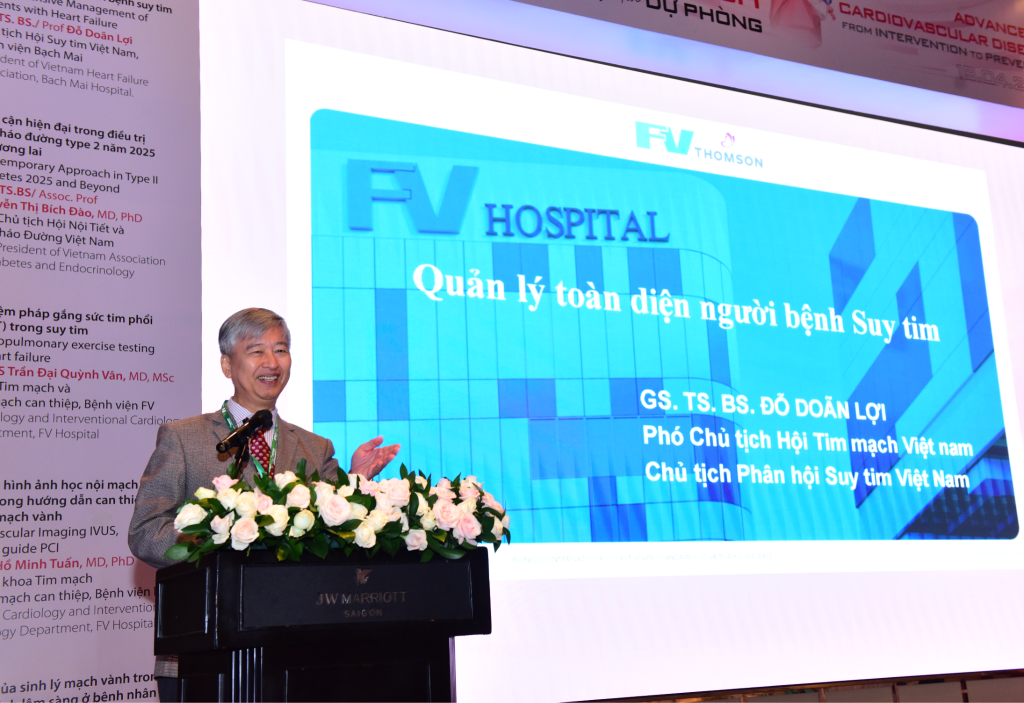
“To reduce the burden of heart failure, including its high prevalence, mortality, and hospital readmission rates – a comprehensive strategy is required, involving a multidimensional, multidisciplinary approach and the active participation of the entire society, especially in raising public awareness,” emphasised Prof. Do Doan Loi.
Assoc. Prof. Nguyen Thi Bich Dao, MD, PhD, Vice President of Vietnam association of Diabetes and Endocrinology addressed the Cardio – Renal – Metabolic Syndrome – a complex health condition encompassing hypertension, dyslipidaemia, cardiovascular disease, chronic kidney disease, type 2 diabetes, overweight and obesity, and hypertriglyceridemia.
Approximately 70% of patients with type 2 diabetes also present with cardiovascular risk factors such as obesity, hypertension, dyslipidaemia, and metabolic syndrome. Therefore, adhering to the latest global guidelines for the management of type 2 diabetes plays a vital role in preventing cardiovascular complications.
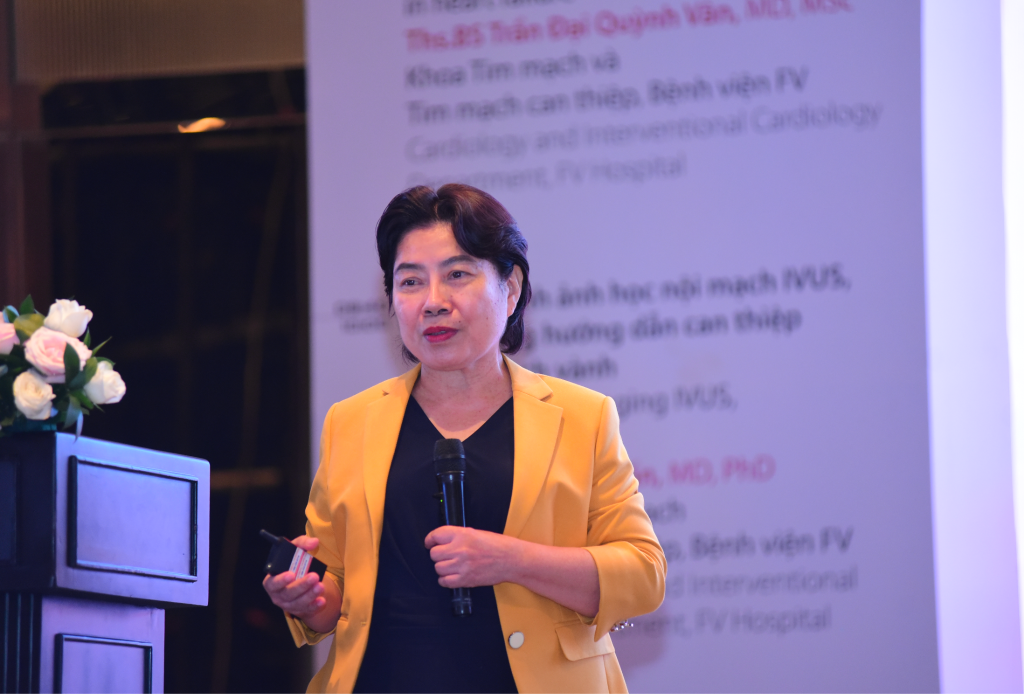
“To effectively manage Cardio-Renal-Metabolic Syndrome, a comprehensive, multidisciplinary approach is essential,” emphasised Dr Dao. “This includes risk stratification, prevention and treatment tailored to risk levels, multidisciplinary care, and a patient-centred approach.”
At the symposium, Tran Dai Quynh Van, MD, MSc, from the Cardiology and Interventional Cardiology Department at FV Hospital, introduced the use of Cardiopulmonary Exercise Testing (CPET) as a valuable tool to assess cardiopulmonary function in heart failure patients. This enables clinicians to optimise treatment strategies for individuals with cardiovascular conditions.
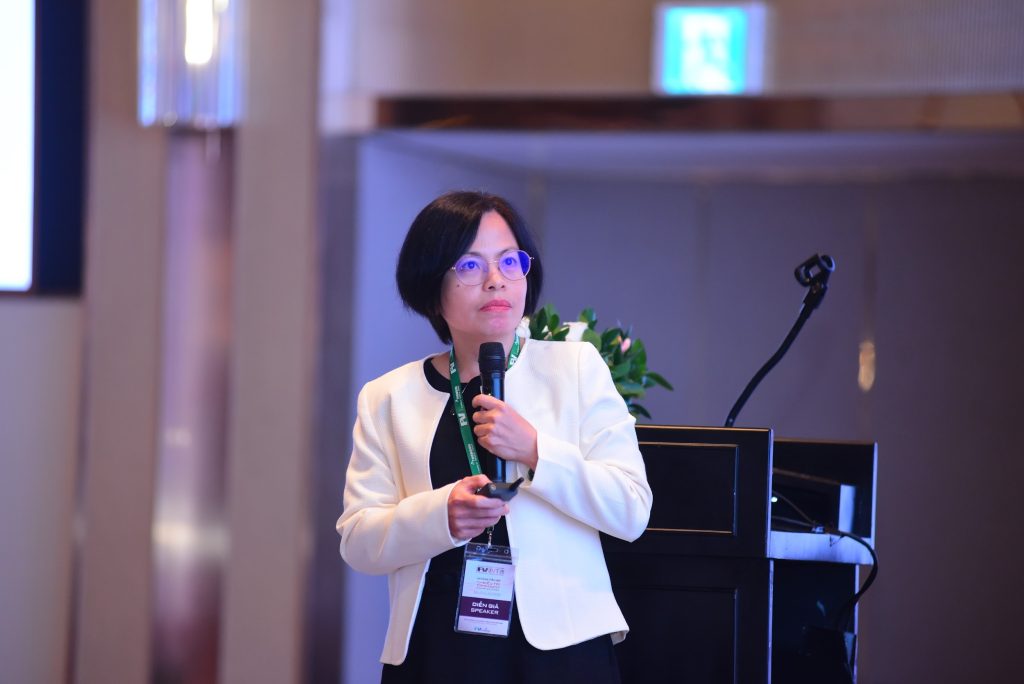
FV Hospital Enhances Its Role as a Bridge for International Medical Collaboration
As a JCI-accredited international hospital, FV has long been committed to advancing healthcare by investing in a state-of-the-art Cardiovascular Centre with a team of highly experienced medical professionals who are consistently updating their skills with the latest technologies. FV is also actively engaged in expanding international collaborations.
Every year, FV organises an annual cardiovascular symposium, inviting top-tier experts both from Vietnam and abroad to share their experiences and update the latest treatment trends in modern cardiology. This initiative contributes significantly to ensuring that Vietnam’s cardiology sector keeps pace with global advancements. Particularly, since FV joined the Thomson Medical Group (Singapore), its strategic collaborations with leading cardiovascular centres and specialists in Singapore and Malaysia have become even stronger.
“The presence of both domestic and international cardiovascular experts brings a refreshing atmosphere and the latest knowledge. The symposium serves as a platform for connecting cardiologists and endocrinologists from across Vietnam, along with leading specialists from around the world, which demonstrates the success of this event. The ultimate benefit is enhancing public health,” Assoc. Prof. Nguyen Thi Bich Dao remarked.
Keh Yann Shan, MMed, MRCP, Cardiology Department at National Heart Centre Singapore, stated: “This symposium is an excellent opportunity for us to collaborate, learn from each other, and improve patient care quality.”
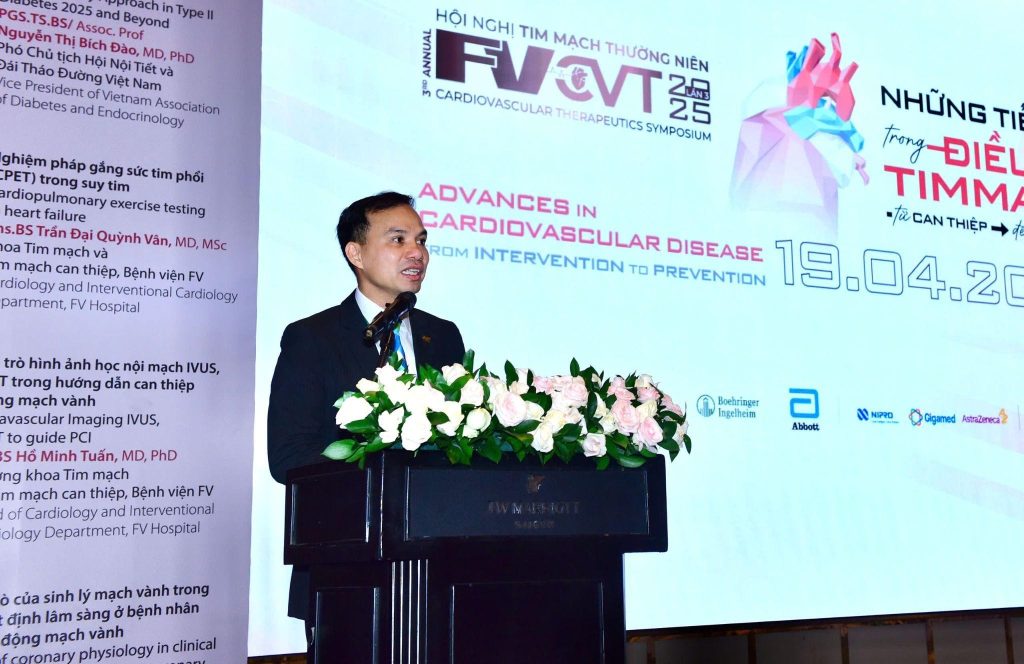
Speaking at the symposium, Vu Truong Son, MD, MSc, Medical Director, FV Hospital emphasized: “Through this symposium, we hope FV will become a trusted regional medical hub where esteemed colleagues can collaborate with our experts and international specialists to manage complex cases, implement advanced cardiovascular techniques, and open up opportunities for clinical research and the development of cutting-edge treatment protocols.”
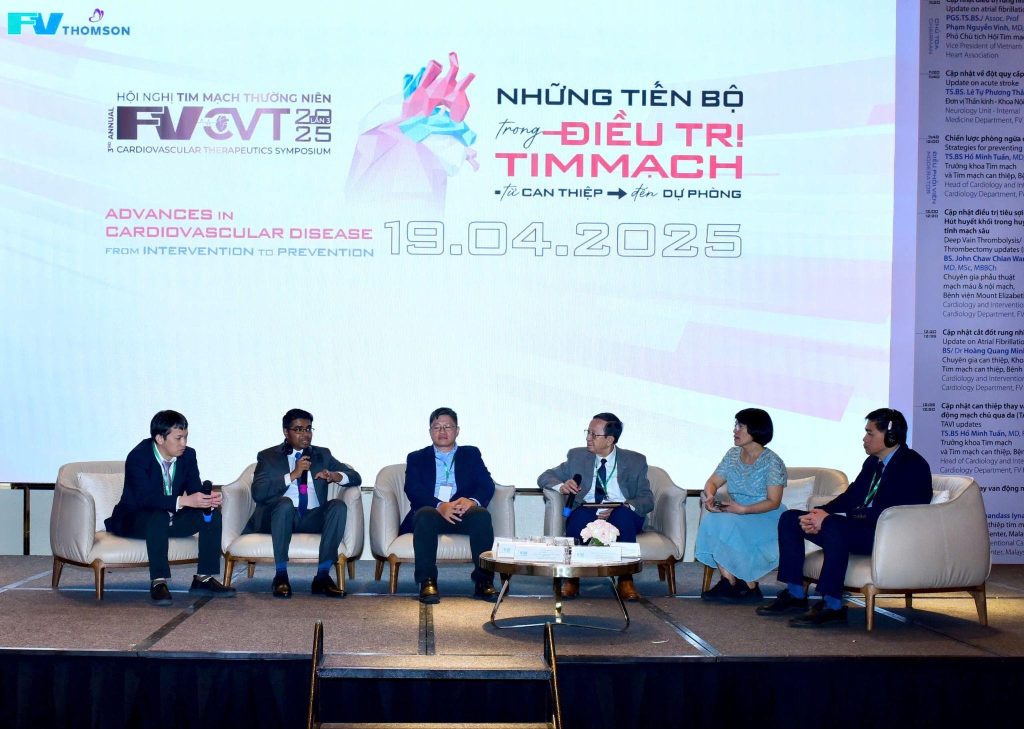

 Vi
Vi 












